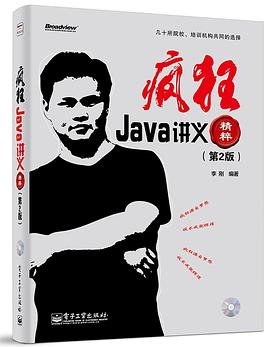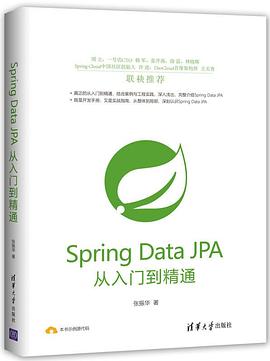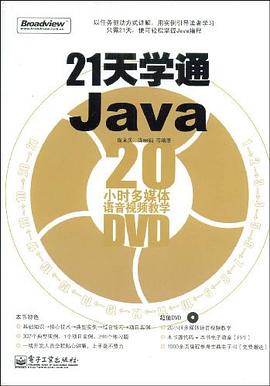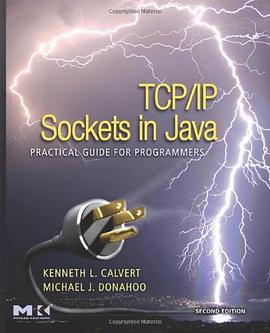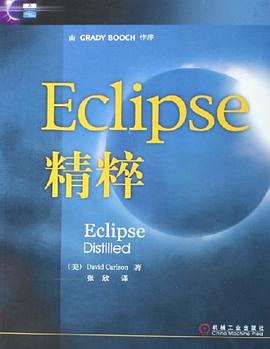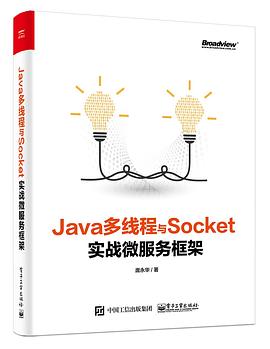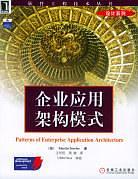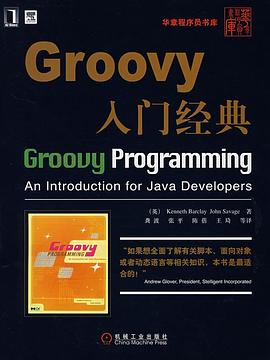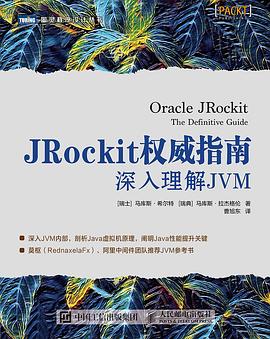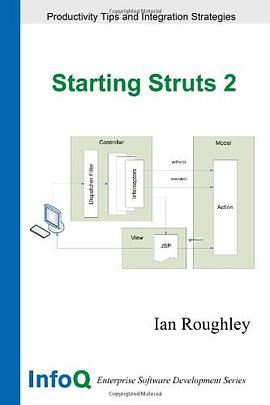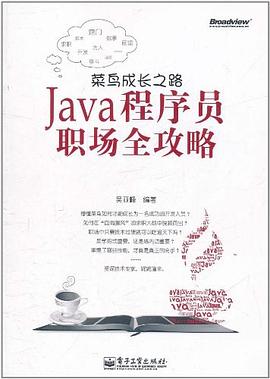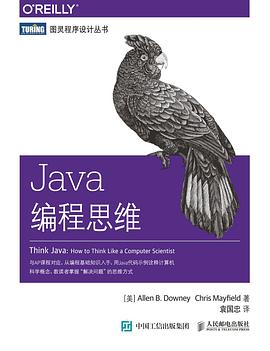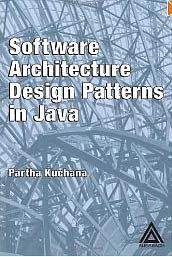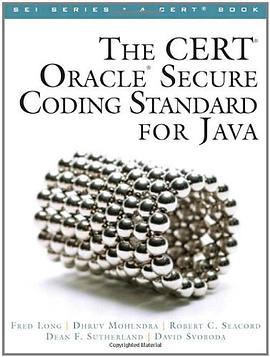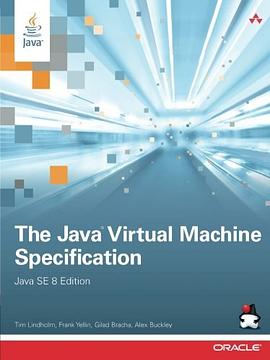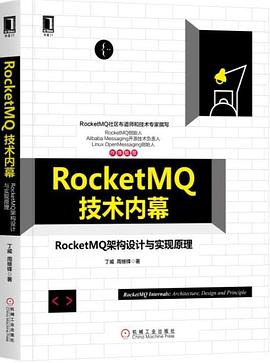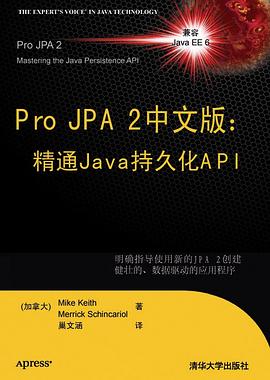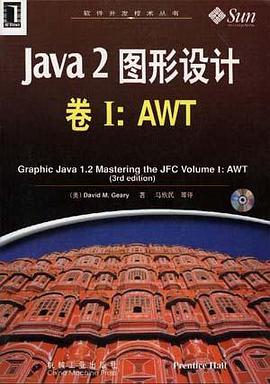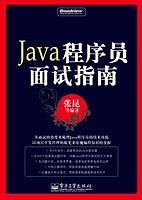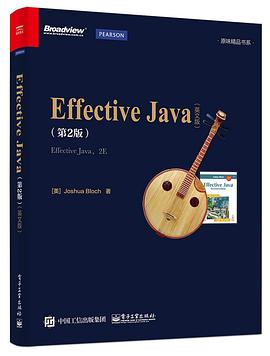

具體描述
《Effective Java(第2版)英文版》介紹瞭在Java編程中的78條非常具有實用價值的經驗規則,這些經驗規則涵蓋瞭大部分開發人員每天所麵臨的問題的解決方案。通過對Java平颱設計專傢所使用的技術的全麵描述,揭示瞭應該做什麼,不應該做什麼,以及怎樣纔能編寫齣清晰、健壯和高效的代碼。《Effective Java(第2版)英文版》中的每條規則都以簡短、獨立的小文章形式齣現,並通過示例代碼進一步進行說明。本書內容全麵,結構清晰,講解詳細,可作為技術人員的參考用書。
著者簡介
Joshua Bloch是Google公司的首席Java架構師。是Jolt大奬的獲得者。他曾是Sun公司的傑齣工程師,和Transarc公司的高級係統設計師。Bloch曾帶領團隊設計和實現過無數的Java平颱特性,包括JDK 5.0語言增強版和獲奬的Java Collections Framework。他的著作還包括:《Java Puzzlers》、《Java Concurrency in Practive》等。
圖書目錄
前言
1 Introduction
2 Creating and Destroying Objects
Item 1: Consider static factory methods instead of constructors
Item 2: Consider a builder when faced with many constructor parameters
Item 3: Enforce the singleton property with a private constructor or an enum type
Item 4: Enforce noninstantiability with a private constructor
Item 5: Avoid creating unnecessary objects
Item 6: Eliminate obsolete object references
Item 7: Avoid finalizers
3 Methods Common to All Objects
Item 8: Obey the general contract when overriding equals
Item 9: Always override hashCode when you override equals
Item 10: Always override toString
Item 11: Override clone judiciously
Item 12: Consider implementing Comparable
4 Classes and Interfaces
Item 13: Minimize the accessibility of classes and members
Item 14: In public classes, use accessor methods, not public fields
Item 15: Minimize mutability
Item 16: Favor composition over inheritance
Item 17: Design and document for inheritance or else prohibit it
Item 18: Prefer interfaces to abstract classes
Item 19: Use interfaces only to define types
Item 20: Prefer class hierarchies to tagged classes
Item 21: Use function objects to represent strategies
Item 22: Favor static member classes over nonstatic
5 Generics
Item 23: Don’t use raw types in new code
Item 24: Eliminate unchecked warnings
Item 25: Prefer lists to arrays
Item 26: Favor generic types
Item 27: Favor generic methods
Item 28: Use bounded wildcards to increase API flexibility
Item 29: Consider typesafe heterogeneous containers
6 Enums and Annotations
Item 30: Use enums instead of int constants
Item 31: Use instance fields instead of ordinals
Item 32: Use EnumSet instead of bit fields
Item 33: Use EnumMap instead of ordinal indexing
Item 34: Emulate extensible enums with interfaces
Item 35: Prefer annotations to naming patterns
Item 36: Consistently use the Override annotation
Item 37: Use marker interfaces to define types
7 Methods
Item 38: Check parameters for validity
Item 39: Make defensive copies when needed
Item 40: Design method signatures carefully
Item 41: Use overloading judiciously
Item 42: Use varargs judiciously
Item 43: Return empty arrays or collections, not nulls
Item 44: Write doc comments for all exposed API elements
8 General Programming
Item 45: Minimize the scope of local variables
Item 46: Prefer for-each loops to traditional for loops
Item 47: Know and use the libraries
Item 48: Avoid float and double if exact answers are required
Item 49: Prefer primitive types to boxed primitives
Item 50: Avoid strings where other types are more appropriate
Item 51: Beware the performance of string concatenation
Item 52: Refer to objects by their interfaces
Item 53: Prefer interfaces to reflection
Item 54: Use native methods judiciously
Item 55: Optimize judiciously
Item 56: Adhere to generally accepted naming conventions
9 Exceptions
Item 57: Use exceptions only for exceptional conditions
Item 58: Use checked exceptions for recoverable conditions and runtime exceptions for programming errors
Item 59: Avoid unnecessary use of checked exceptions
Item 60: Favor the use of standard exceptions
Item 61: Throw exceptions appropriate to the abstraction
Item 62: Document all exceptions thrown by each method
Item 63: Include failure-capture information in detail messages
Item 64: Strive for failure atomicity
Item 65: Don’t ignore exceptions
10 Concurrency
Item 66: Synchronize access to shared mutable data
Item 67: Avoid excessive synchronization
Item 68: Prefer executors and tasks to threads
Item 69: Prefer concurrency utilities to wait and notify
Item 70: Document thread safety
Item 71: Use lazy initialization judiciously
Item 72: Don’t depend on the thread scheduler
Item 73: Avoid thread groups
11 Serialization
Item 74: Implement Serializable judiciously
Item 75: Consider using a custom serialized form
Item 76: Write readObject methods defensively
Item 77: For instance control, prefer enum types to readResolve
Item 78: Consider serialization proxies instead of serialized instances
Appendix: Items Corresponding to First Edition
References
Index
· · · · · · (收起)
讀後感
如果你使用刚刚学会的Java做了一个小应用程序,那么你就可以开始有选择地看这本书。书中分别对Java的不同特性分章节给予作者本人的建议。如果你还没有用到其中的某一特性,那么就没必要读相关的章节,跳过去。只有你经历过了,摔倒过了,困扰过了,你才会与书中的建议产生共鸣...
評分很早就读过,当时就知道这本书很好,可惜当时功力尚浅,没什么收获。但近日再读时,确实很有收获,可以说此书虽不是深入骨髓,但也算入木三分。新手勿动!
評分case insensitive 是不区分大小写的,为什么翻译成区分大小写了。 但是作者的例子 也是区分大小写,String本来就区分大小写,作者到底是什么意图? ...
評分就内容来说还是相当不错的,翻译也挺好的不会有拗口的感觉.纸质有很多人抱怨过了我就不重复说了.不过对阅读不影响,反正是学里面的东西又不是冲着纸去的.不过话说回来有点小贵啊
評分1. Java程序员分两种,读过<Effective Java>的和没读过的,严格的来说,没读过的不算是Java程序员。 2. 书组织的不错,很适合在碎片时间看上一两条,然后再慢慢回味; ...
用戶評價
為瞭麵試 也是豁齣去瞭 @@
评分都是大佬的經驗之談,但很偏實際工程,完全實用主義上的,如果隻是寫業務代碼作為client programmer而不是寫tool,很多item都不太能提供幫助
评分內容很豐富且實用,獲益匪淺!
评分非常棒,內容詳實,讓人深入瞭解瞭java語言諸多特性的細微之處,告訴瞭我們該做什麼不該做什麼,以及最重要的為什麼。
评分雖已編程這麼多年,很多最佳實踐也都實踐過瞭,這本書給齣的一些實踐還是很棒。有時其實書中給齣的建議隻是個結果,作者是如何思考得齣的建議更為珍貴。
相關圖書
本站所有內容均為互聯網搜索引擎提供的公開搜索信息,本站不存儲任何數據與內容,任何內容與數據均與本站無關,如有需要請聯繫相關搜索引擎包括但不限於百度,google,bing,sogou 等
© 2025 book.quotespace.org All Rights Reserved. 小美書屋 版权所有

